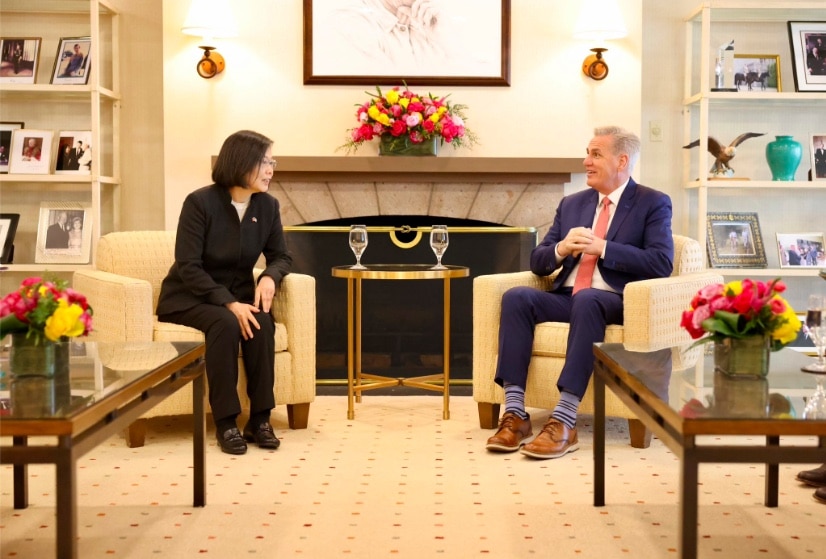China on Thursday announced it was imposing sanctions on the Reagan Library and others after Taiwan President Tsai Ing-wen met with House Speaker Kevin McCarthy (R-CA) there earlier this week.
According to China’s Ministry of Foreign Affairs, the Reagan library and the Washington think tank the Hudson Institute—from which Tsai has accepted a leadership award—were sanctioned for “providing a platform and convenience to Taiwan separatist activities.” The sanctions prohibit Chinese institutions from having any cooperation or contact with the institutions.
The Chinese ministry also cited the executives of the two organizations, saying they were barred from visiting China, and that any property or financial assets belonging to them in China would be frozen.
“We will take resolute measures to punish the ‘Taiwan independence’ separatist forces and their actions, and resolutely safeguard our country’s sovereignty and territorial integrity,” the Chinese Cabinet’s Taiwan Affairs Office said in a statement.
In imposing the sanctions, China was continuing to make good on a threat from March to undertake “resolute countermeasures” if McCarthy and Tsai went through with their planned meeting, saying it would be “another provocation that seriously violates the one-China principle.”
McCarthy and Tsai held their meeting at the Reagan Library in Southern California on Wednesday anyway. They were joined by a bipartisan group of at least 17 other lawmakers, including the leading Republican and Democrat on the newly-formed House Select Committee on the Chinese Communist Party.
Also on Thursday, China deployed warships and other military vessels in the air and waters surrounding the self-governing island of Taiwan—much the same as a military blockade against Taiwan last summer in response to a visit to the island by then-Speaker Nancy Pelosi (D-CA).
China claims Taiwan as its own territory, and has in recent months been saber-rattling against its neighbor, situated just 100 miles off the Chinese coast. Analysts say that China has been watching and waiting to see how Russia fares in its invasion of Ukraine before going forth with an assault against Taiwan.
Taiwan’s Foreign Minister had asserted last summer that the Chinese blockade following Pelosi’s visit was a “game plan” for invasion.
Tsai was defiant against China’s threats in her determination to visit the U.S. and a handful of Central American countries over the past week, telling reporters ahead of her travel that “external pressure” would not stop Taiwan from connecting with like-minded democracies.
On the same day that China imposed its sanctions, a bipartisan delegation of U.S. lawmakers arrived in Taiwan, including House Foreign Affairs Chair Michael McCaul ( R-TX). It was part of a three-nation trip that also included stops in Japan and South Korea—both of which have recently beefed up their military postures in response to China’s saber-rattling.


